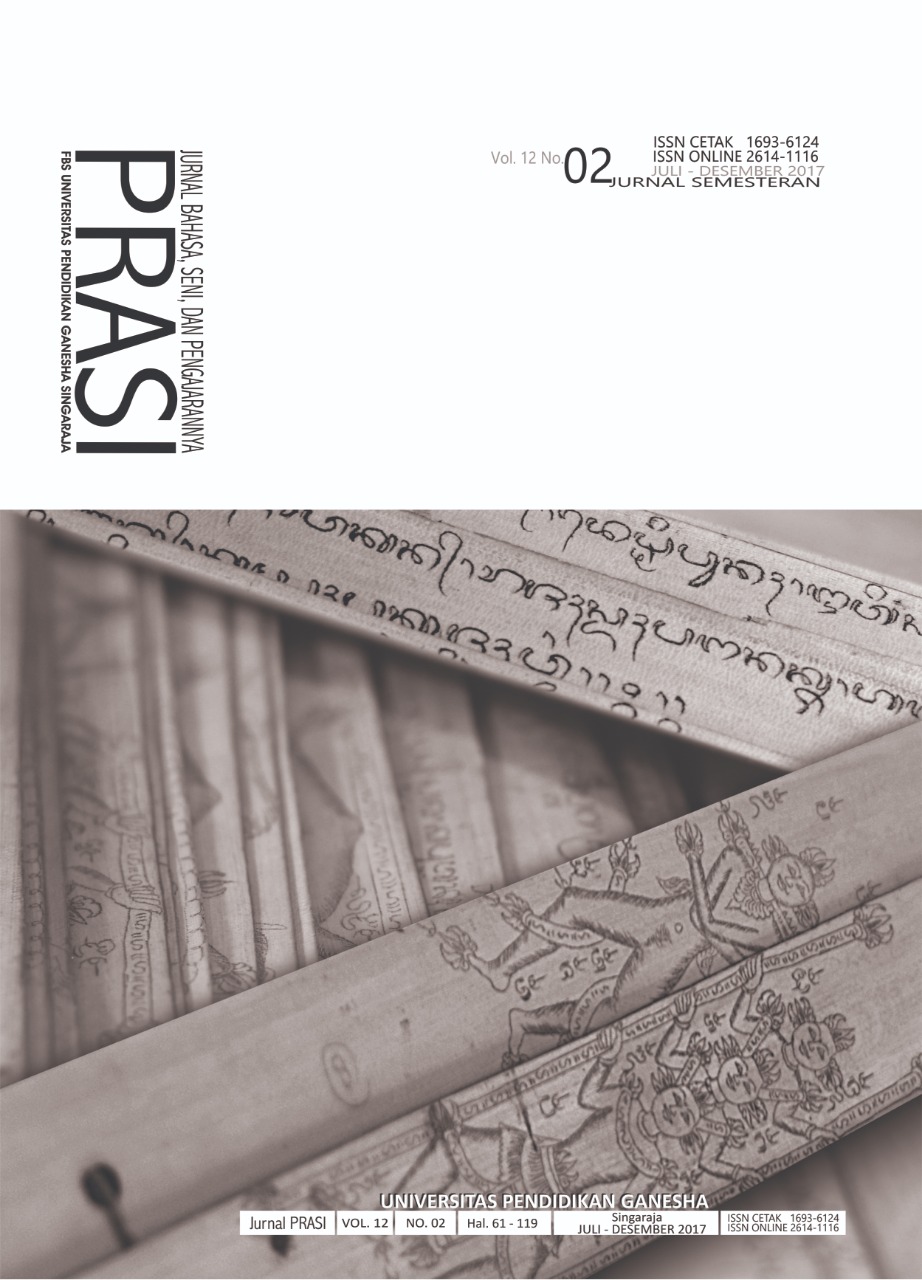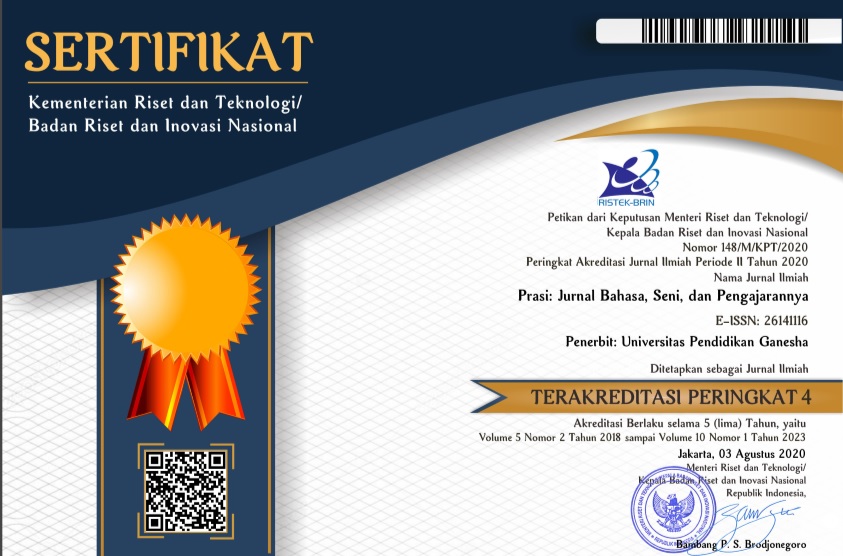A STUDY ON A VIRAL VIDEO ABOUT BULLYING A TEACHER
DOI:
https://doi.org/10.23887/prasi.v12i02.13919Abstract
This article aims to investigate a discourse in the form of video. The video is a controversial one, entitled “Tidak Sopan, Seorang Siswa SMK Negeri 3 Denpasar Bali Menanyakan Rumah Flyod Mayweather Kepada Guru” uploaded on YouTube on September 22nd, 2017. The objective of this article is to answer three main problems found in the discourse. Those problems are about the reason behind the title of the video containing the word ‘impolite’, the motive behind asking the location of Mayweather’s house, and the motive behind choosing teacher as the target of student’s question. The discourse was analyzed by using qualitative approach supported by several theories, namely politeness theory, norms theory, sor singgih basa Bali, prank theory, imitation theory, and hierarchy theory. The results showed that the use of word ‘impolite’ in the title of the video is correct based on several evidences that the researchers found in the video. The second result showed that the student has three motives of asking the location of Mayweather’s house, namely doing a prank, imitating other pranksters, and gaining fame. The last result showed that the motive of student in choosing teacher as the target is to show that he is more powerful than others.Downloads
Published
2017-12-25
Issue
Section
Articles
License
Authors who publish with Prasi agree to the following terms:- Authors retain copyright and grant the journal the right of first publication with the work simultaneously licensed under a Creative Commons Attribution License (CC BY-SA 4.0) that allows others to share the work with an acknowledgment of the work's authorship and initial publication in this journal
- Authors are able to enter into separate, additional contractual arrangements for the non-exclusive distribution of the journal's published version of the work (e.g., post it to an institutional repository or publish it in a book), with an acknowledgment of its initial publication in this journal.
- Authors are permitted and encouraged to post their work online (e.g., in institutional repositories or on their website) prior to and during the submission process, as it can lead to productive exchanges, as well as earlier and greater citation of published work. (See The Effect of Open Access)


.png)
.png)









